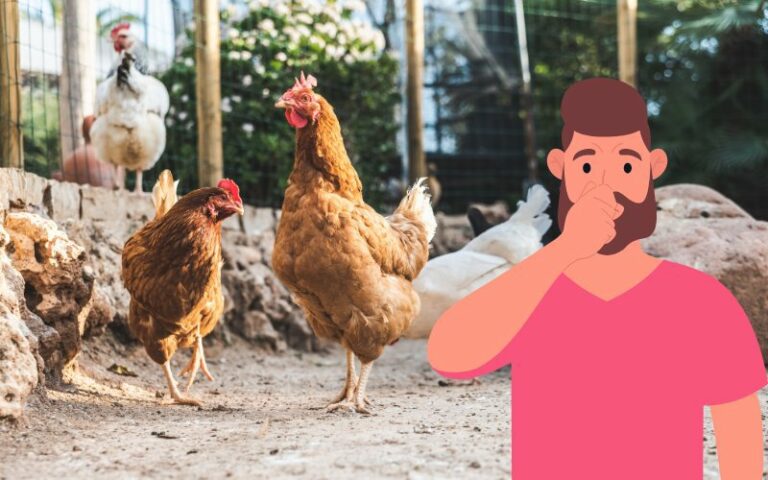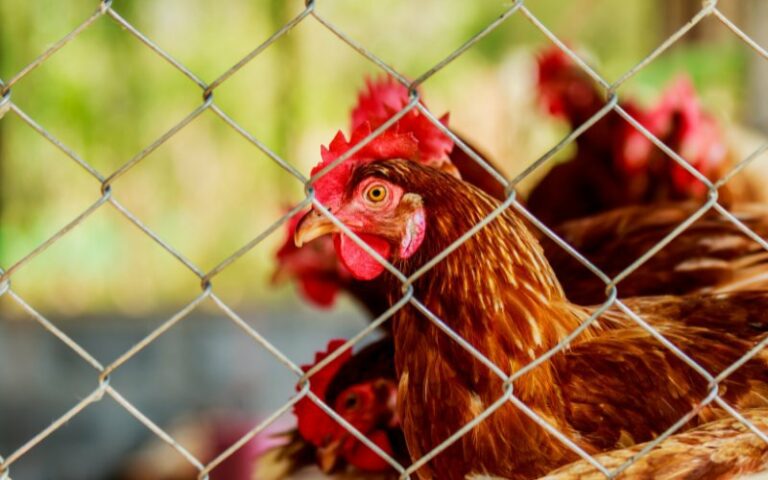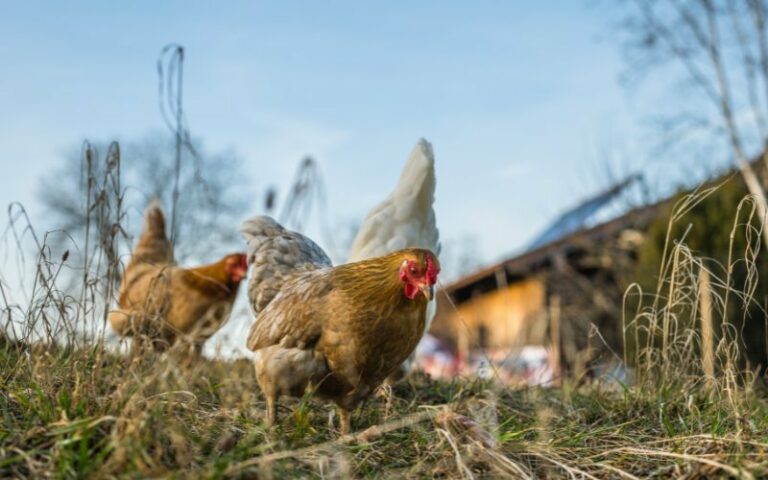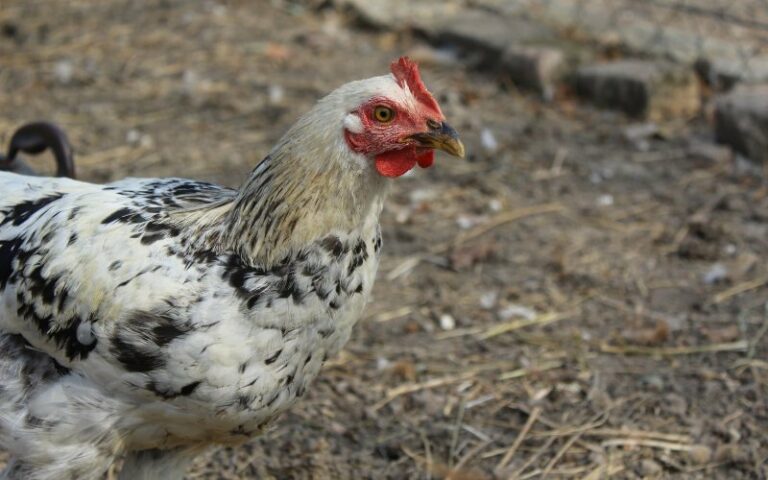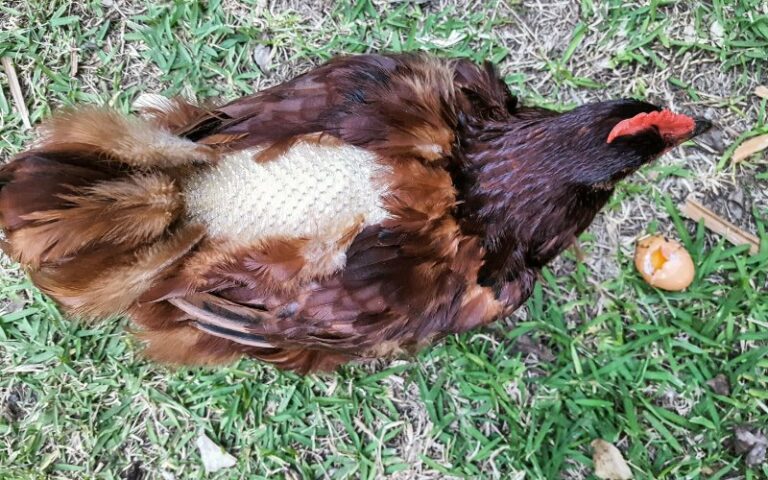Chicken Walking Like It’s Drunk (Causes + Solutions)
Chickens typically walk with jerky, alert movements. A dizzy chicken is sure to stand out from its strutting, pecking coop mates. My chickens have quicker reaction times than I do, so I would definitely be concerned if they started losing their balance, stumbling sideways or backward, or otherwise acting drunk.
If one of your chickens looks drunk, and there’s no possible way it could’ve gotten access to alcohol, you’re probably wondering what’s going on. And for good reason – this is definitely not normal behavior. It may look ridiculous, but I’m sure you’re worried about your hen if it’s stumbling around. I’ve found that dizziness in chickens is usually a sign of a problem like dehydration, sickness, or injury.
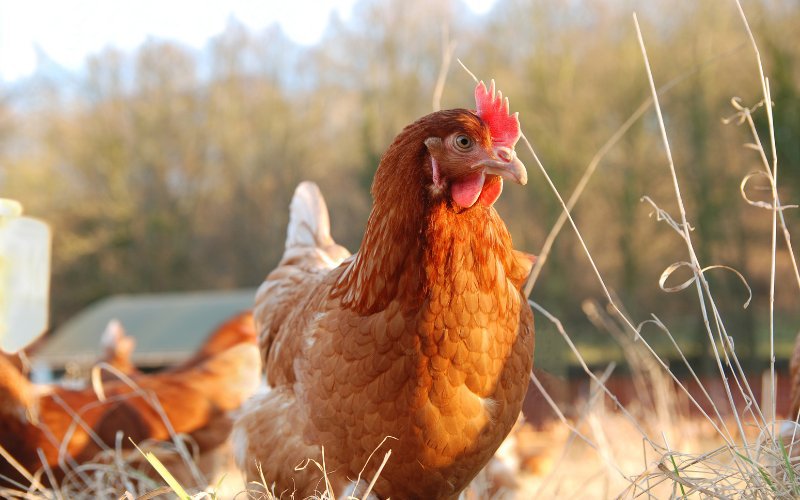
Why Is Your Chicken Walking Like It’s Drunk (The Short Answer)
Dizziness in chickens isn’t normal and usually means that something is wrong. However, it doesn’t necessarily have to be serious; your chicken could simply be suffering from dehydration, have been injured, or have a vitamin or electrolyte imbalance. Dizziness can also be a symptom of a variety of diseases, including Marek’s disease, botulism, or a fungal infection.
8 Possible Causes of a Chicken Walking Like It’s Drunk (+ What to Do)
Dizziness in chickens could be caused by a variety of problems, and they all have different solutions. Keep an eye out for other symptoms that might help you or your veterinarian determine what the problem is.
Dehydration
Before you spend your money on a visit to the vet, you’ll want to eliminate the most fundamental issues – like dehydration. If the weather is unusually hot and/or dry, your chickens’ drinking water could be evaporating, preventing them from getting enough. If only one bird is suffering from dizziness, it might be getting bullied.
What to Do: Make sure your chickens are drinking enough. Fill their waterer twice a day and consider adding another waterer to make sure every chicken has plenty to drink. You can also feed the bird watery foods like watermelon and cucumber to help it rehydrate.
Vitamin Imbalance
This is another issue that can probably be solved by a quick trip to the feed store. Vitamin imbalance could be a result of whatever type of feed your chickens are getting. Also, if your chickens are confined in a small space, they might not be benefitting from the vitamins and minerals they would otherwise get from eating bugs, greenery, and so on. Young chickens and chicks are particularly susceptible to vitamin or electrolyte imbalance.
What to Do: To solve the problem, purchase poultry vitamin supplements at a feed store. Also, ensure that your chickens get the right feed for their age, breed, and weight. Finally, if you have the space, consider free-ranging your chickens to let them forage for nutritious plants.
Fungal Infection
Fungal infections, like aflatoxicosis and mycotoxicosis, are typically caused by contaminated feed. If feed gets wet, it can go bad and cause these infections.
What to Do: Try to keep feed dry to prevent fungal infections. Chickens already suffering from an infection should receive vitamins and plenty of water to help support their immune systems. If your birds don’t improve, have a professional check them out.
Botulism
Botulism is a food poisoning that is caused by a toxin that can be found in overripe, underripe, or rotting fruit and veggies, as well as other decaying matter. In some cases, it can cause death a couple of days after ingestion. Other symptoms include weakness, dizziness, diarrhea, and fatigue.
What to Do: Make sure your chickens don’t have access to rotting plant or animal material to avoid future cases of botulism. Chickens that have already ingested poison can be treated by flushing out their crop. Depending on how bad the botulism is, it’s best to have a professional do this – it could involve putting a tube down the chicken’s throat and/or removing partially-digested food from the crop.
However, you can do a simple flush at home if the problem isn’t serious. Mix a solution of one teaspoon Epsom salt and half a cup of water. Pour or squirt the solution with a syringe down the chicken’s throat, being careful to avoid the airway. Repeat two to three times a day for a couple of days.
Fever
Dizziness could be a result of fever in chickens. However, fevers could be a symptom of a variety of sicknesses, such as a simple cold or something more serious.
What to Do: Wait for a few days to see if your chicken gets over the illness by itself. Keep it warm, dry, and fed, and consider giving your chicken supplements. If it doesn’t improve, seek professional help.
Marek’s Disease
Marek’s disease may paralyze a bird’s legs, causing it to lose coordination and stagger around. Other symptoms include difficulty breathing and crop dilation. This disease is extremely contagious.
What to Do: There is no cure for Marek’s disease. If you think a chicken has it, quarantine it right away and deep clean the coop to try to prevent further spread. It’s a good idea to check with a professional to make sure that it’s actually Marek’s. You may also want to consider vaccinating the rest of your birds as well.
Equine Encephalitis
Since this disease is transmitted by mosquitoes, chickens have a higher chance of suffering this illness if they’re located near a swampy, mosquito-infested area. Other symptoms include a loss of appetite, muscle paralysis, blindness, drowsiness, and overall weakness.
What to Do: This disease is not treatable. If you think a chicken has equine encephalitis, check with a vet. You may also want to take steps to remove the source of the problem through mosquito control.
Head Injury
Like humans, chickens can also suffer head trauma, which can cause dizziness. This is likely the problem if you saw the chicken hit its head somehow and the dizziness followed the injury.
What to Do: Depending on the severity of the injury, the chicken may or may not recover. Isolate the chicken in a dim, dry area and give it some time.

